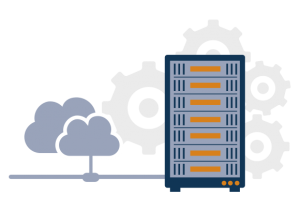Performance Marketing
Performance marketing, as the name suggests, is marketing focused solely on the performance of marketers or affiliates employed by brands or retailers. Performance can refer to a variety of outcomes depending on a brand’s goals, such as a sale, lead, booking, or even a download trigger.
The performance marketing technique allows you to pay only when a specific action is completed or a goal is achieved by the affiliates or marketers. Retailers or brands feel confident, as they are already engaging and converting their target audience before paying for the marketer’s performance.
To be at the forefront of marketing innovation, you need to invest in performance marketing. It enables real-time ROI (return on investment) measurement and encourages marketing industries to continually evolve and innovate with their partner companies.
Effective performance marketing builds loyal organisations, expands your business, and provides you with the ideal tools to achieve your objectives.
How Performance Marketing Works
The performance marketing process begins with hiring an expert online marketer. A skilled marketer will construct well-planned content before engaging with the desired audience. Additionally, they will utilise excellent marketing tools when conveying your content to the audience. Some of these marketing tools include research surveys and focus groups. The process is then expanded, and the marketing strategy is researched, planned, and executed.
There are four main groups involved in executing a performance marketing strategy. These groups collaborate to create and implement an effective marketing strategy, with each having a specific role.
The Retailers
Retailers, also known as brands, merchants, or advertisers, are businesses or brands that want to achieve a certain goal – sell a product, gain exposure, or generate leads.
Retailers or brands in various sectors, such as beauty and fashion, food and beverages, health and lifestyle, can thrive in performance marketing.
The Affiliates
Affiliates are publishers or marketers that promote brands and their products using different techniques and methodologies. Affiliate marketers initiate the marketing or promotion of the brand or its products on their own websites, blogs, or social media platforms.
The most successful affiliates or marketers in this marketing space are typically those with an established presence online or on numerous marketing platforms with an engaged audience.
The Networks
Networks or platforms are third-party groups that connect retailers and affiliates. They manage payments and strategies and track the effectiveness of those strategies. Retailers do not necessarily need to go through a channel, but they will likely still need a network to track sales, clicks, and other KPIs (key performance indicators).
The OPMs
OPMs (outsourced programme managers), also known as affiliate managers, are considered the key drivers between retailers and affiliates. They carry out full-service marketing campaigns for businesses that prefer not to handle their campaigns in-house. Working with an expert OPM means that retailers can manage their performance marketing campaigns more effectively and achieve a faster ROI.
Now that you understand how performance marketing operates, let’s explore the payment methods used within this space.
- CPL – Cost per lead is the approach where marketers or retailers only pay when a user signs up for their marketed product. It is primarily measured when a user completes the signup or registration form on their website without spending any money. It can be as simple as filling in your name or as complex as completing a two-page questionnaire.
- CPM – CPM stands for cost per mille and is often referred to as cost per thousand. It is the cost of an ad, measured per 1000 impressions on a digital platform. An impression occurs when someone sees the ad or campaign on social media, search engines, or any other website. This is the most common strategy for pricing web advertisements in digital marketing.
- CPA – Cost per acquisition, or cost per action, in performance marketing determines the amount retailers pay to affiliates once users buy their products. As the name suggests, it is the method in which payment is made after the desired action is taken by the targeted users. It is the most effective payment method for e-commerce businesses.
- CPC – CPC stands for cost per click, a payment method where the retailer pays affiliates when they direct users from their websites or social media platforms to the business’s landing page. The click on the retailer’s business ad or product link takes the user directly to their website.
In summary, performance marketing has become the most popular marketing strategy for e-commerce businesses, retailers, and merchants. It is the approach to establish and build your online presence, increase your product recognition, or engage with your target audience without setting substantial budgets.


